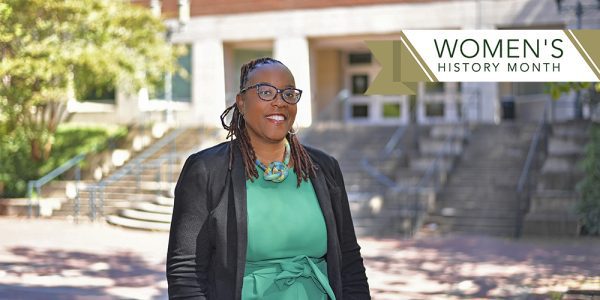Thinking about barriers: Why Women’s History Month is important

Women’s History Month would not exist without women in the 1970s and 1980s advocating for themselves and, by extension, the recognition of women’s issues.
Though Women’s History Month was started predominately by white women, women of color were instrumental in shaping and driving women’s rights movements. Take the Combahee River Collective Statement, which was written by a group of Black women and had a profound impact on feminism.
According to Janaka Lewis, director of the Women’s and Gender Studies Program, there has been a move to make the month more inclusive in who it celebrates; the question is how. She said that we must “[acknowledge] the contributions, globally and internationally, but also nationally…What are the contributions of a diverse body of women to every field? It has to go throughout everything we’re thinking about: from the sciences to engineering to healthcare to humanities and leadership.”
Yet our celebrations can go beyond recognizing accomplishments. To Lewis, this is why Women’s History Month is important. “We continue to bring to light the value of women in society and what the challenges have been,” she said.
Every March, Lewis encourages us to “think about…the barriers in terms of pay gap, equity, jobs and healthcare issues that are still affecting us.” She reminds us to ask ourselves, “What do we still need to do?”
Celebrate a diverse Women’s History Month with Lewis’s recommendations:
Podcasts
- On the Issues with Michele Goodwin
- Our Body Politic
- The PHG Podcast (Professional Home Girl)
- Stuff Mom Never Told You
- Hey, Girl with Alex Elle
- Going Through It with Tracy Clayton
- Black Girl in Om
Books and Magazines
- Ms. Magazine
- A Black Women’s History of the United States, Daina Ramey Berry and Kali Nicole Gross
- Freedom Narratives of African American Women, Janaka Bowman Lewis
- Feminist Theory Reader, Local and Global Perspectives, ed. Carole R. McCann, Seung-kyung Kim and Emek Ergun
- Reading, Writing, and Segregation: a Century of Black Women Teachers in Nashville by Sonya Y. Ramsey
Thank you to Janaka Lewis of UNC Charlotte’s Women and Gender Studies Program for her knowledge, time and expertise. Quotes have been edited for length.